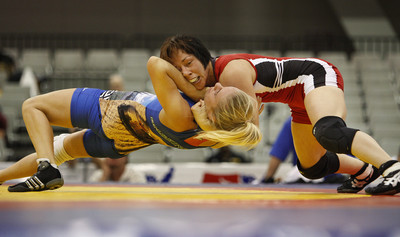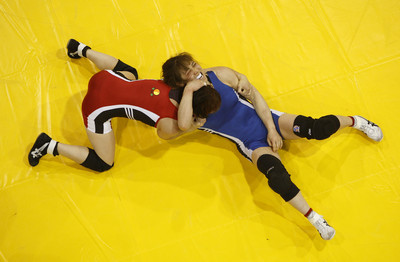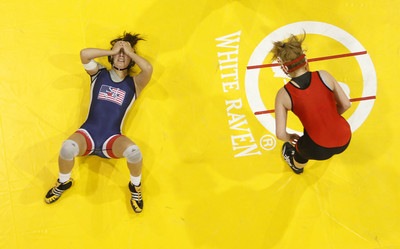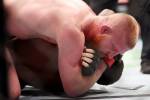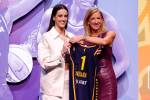Women grapple with unfair perceptions
Google these words: women, wrestling.
There are thousands of pictures of women in bikinis. Pictures of women jumping off 20-foot ladders. Pictures of women named Paradise and Danger and Boom Boom. There is a site called Women's Wrestling Exposed, and it doesn't mean discovering the political affiliations of the women featured. The only things missing appear to be mud and Jell-O.
There is even a link for Christian Women's Wrestling, which in explaining its mission quotes Ephesians, the part about wrestling not against flesh and blood but against the rules of darkness of this world. Who knew women wrestlers hated Hank Steinbrenner so much.
It's as predictable as it is profitable, typecasting at the most standard level. Women and wrestling are still defined in a mainstream way as more sex appeal than skill, mostly because it seems to be good for business when Lana Star (whoever she is) stops in the middle of a match to check her hair and makeup, mostly because this is what sells.
Kristie Marano of Colorado Springs, Colo., has spent 12 years trying to portray a different persona, hoping her gender and sport when mixed might generate heavy breathing only from those competing and not those watching. Patricia Miranda, also of Colorado Springs, has chased the same dream, in between attending Stanford and graduating Yale Law School. Tatiana Padilla ranks second in the nation in her weight class. She wants to win her next match as much as Tiger Woods does his next tournament. She doesn't dislike losing. She loathes it. She is 17.
The three are here this week for the U.S. Nationals at the Las Vegas Convention Center, having competed in Senior Women's Freestyle on Thursday. This is the serious side of women's wrestling, the real side, the side where singlets are not considered a really bad one-piece.
There was this feeling that once women's wrestling became an Olympic sport in 2004, it would soar nationally like Kobe Bryant. It hasn't, and yet participation at the prep level is more than five times what it was 10 years ago.
But it's a slow process because most girls still must compete on boys teams in high school and enough colleges still don't see the sport as a viable way to fulfill gender-equity requirements, because at the end of the day, millions of little Susies are still taught to kick a soccer ball or smack a softball more than they are proper takedowns and escapes.
"It takes a special girl to do this," said David Ochoa, who has coached Padilla the last four years at Northview High in Covina, Calif. "But once they decide this is what they want, each one works hard and pays the price."
I would argue more than men, which is amazing when you consider the sacrifice and discipline it takes for them to train and make weight. Men are naturally stronger, which makes the training that much more punishing for women to succeed. But if they can persevere to a level where other women await, Olympic dreams can just as easily be realized and shattered as any medal hopeful.
Marano knows. She entered the 2004 Olympic trials as a No. 1 seed in the 138.75-pound limit but missed weight by less than a pound. She sat in a sauna for four hours, didn't lose an ounce and had to compete at 158.5. She finished second, one win from Athens.
She was upset in the semifinals at 158.5 Thursday and finished fourth, meaning she'll have to win her way out of a mini-tournament at the trials here in June for the right to wrestle for a spot on the U.S. roster in Beijing. The same fate awaits Padilla, who finished fifth at 121.
Miranda is much closer. She won bronze at Athens and on Thursday won the national title at 105.5, leaving her just two wins in June from another Olympic berth. She will sit and wait for the survivor of a tournament in her class to face in a best-of-3 final. It would be like North Carolina being placed in the Final Four without having to play one NCAA Tournament game.
"I still find when I tell someone I wrestle, they're like, 'In mud or oil?' " said Miranda, a seven-time U.S. champion. "It's an unfair perception, but it's out there. I think we all hope that when the coverage (from Beijing) is being shown, people flipping through the channels will see us sweating and crying and battling. For people to see it and understand how much it takes for us to do this, that might change their mind about women wrestling. It might change the stereotype."
Lana Star wouldn't play here. It takes too much skill. Too much desire.
Heck, too much clothing.
Ed Graney can be reached at 383-4618 or egraney@reviewjournal.com.
ON THE WEB Watch the slideshow



